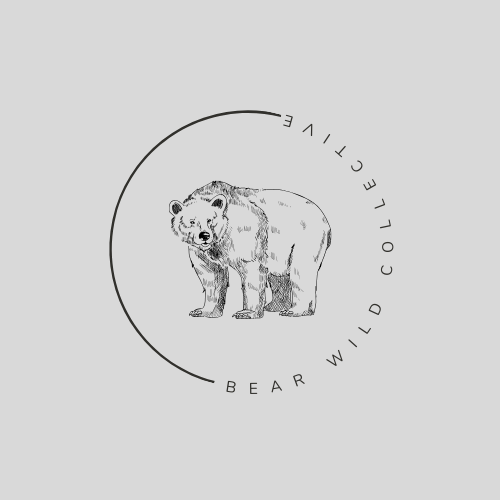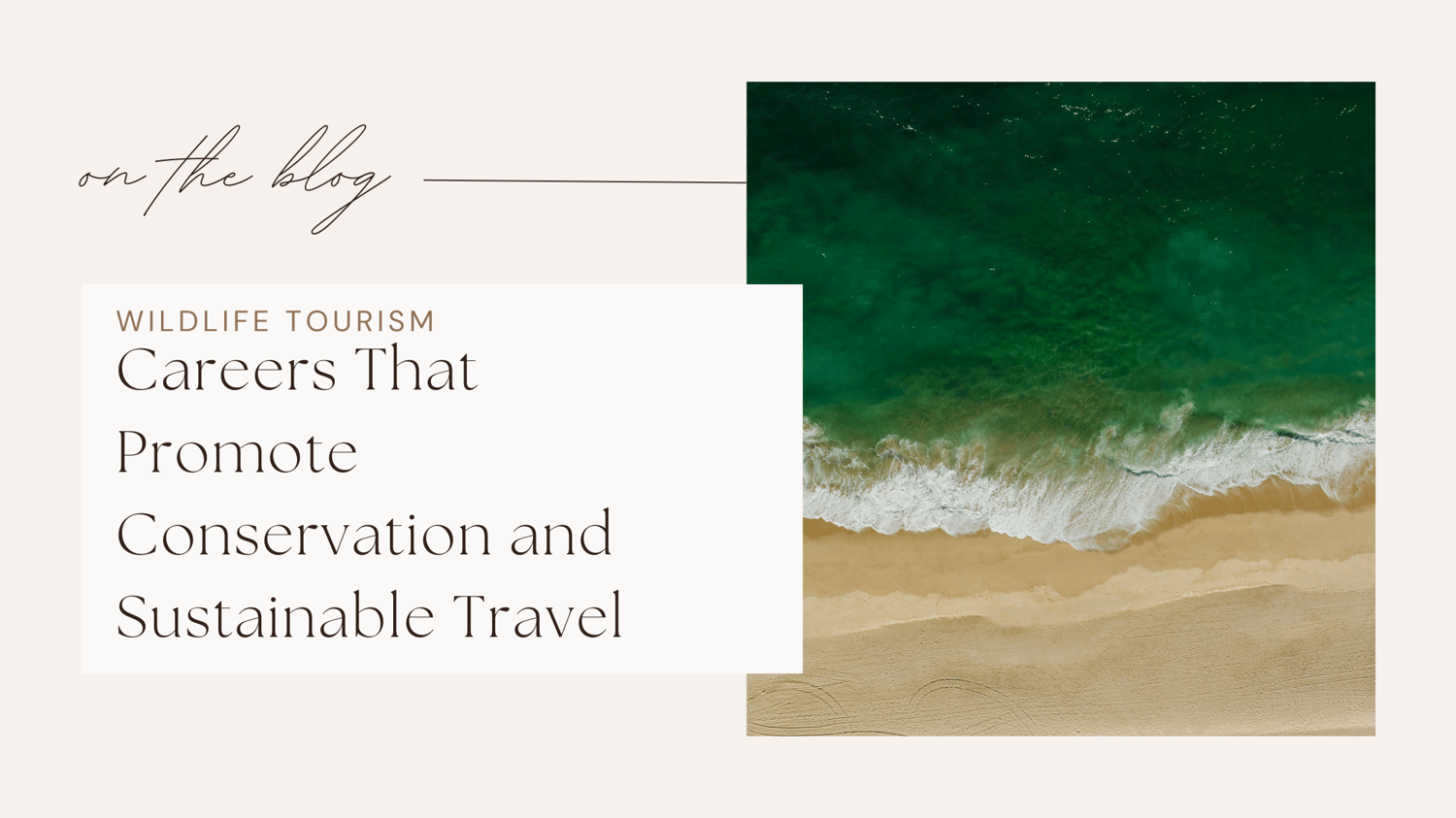The wildlife tourism sector is one of the fastest-growing segments of the global travel industry. As more people become aware of the importance of conservation, they are increasingly choosing travel experiences that allow them to connect with nature while supporting wildlife protection efforts, and wildlife organisations support wildlife friendly destinations. The sector provides diverse career opportunities that range from field-based roles in conservation to positions in hospitality, marketing, and education. Here’s a look at some of the most exciting and impactful jobs in wildlife tourism.
For more info about the huge range of skills and organisations across the wildlife sector see our Wildlife Career Accelerator and Wildlife Work Directory.

[Credit Josh Withers]
1. Eco-Tourism Guide
Wildlife tour guides are among the most visible and crucial professionals in the wildlife tourism industry. They lead groups of tourists on nature expeditions, safaris, bird-watching tours, or marine excursions. Guides provide valuable information about local wildlife, ecosystems, and the conservation issues facing particular species or habitats. They also play a vital role in ensuring tourists adhere to responsible travel practices that minimize their impact on wildlife and the environment. These roles require strong communication skills, an in-depth knowledge of wildlife, and a passion for conservation. Many guides also undergo specialized training in first aid, safety, and sustainable practices. They may work for eco-lodges, safari companies, or non-profit organisations focused on environmental education.
2. Wildlife Educator
Wildlife conservation educators work in settings like national parks, wildlife reserves, and wildlife-focused tour operators. Their main role is to educate the public about the importance of protecting wildlife and ecosystems. This could involve developing educational materials, leading public talks, creating exhibits, or organizing workshops for tourists, school groups, or local communities. These positions are ideal for individuals with a passion for wildlife and teaching. Wildlife conservation educators combine their knowledge of species and habitats with a strong commitment to sustainability to inspire others to become responsible travelers and supporters of conservation efforts.
3. Wildlife Photographer/Filmmaker
Wildlife photographers and filmmakers capture the beauty and intricacies of wildlife, often working in collaboration with wildlife tourism companies or conservation organisations. Their work showcases the wonders of nature and helps raise awareness about the importance of conservation. Photographers may document rare species, habitats, or even the impact of human activity on wildlife, which can be used in marketing materials, documentaries, or conservation campaigns. For those with a talent for visual storytelling, wildlife photography and filmmaking offer an exciting career that not only celebrates wildlife but also plays a key role in promoting sustainable tourism and encouraging conservation efforts.
4. Travel Consultant for Eco-Tourism
Travel consultants who specialise in eco-tourism play a critical role in connecting eco-conscious travelers with responsible tourism experiences. They help plan trips to destinations that prioritise sustainability, support conservation initiatives, and minimise environmental impact. Consultants advise clients on choosing destinations, tour operators, accommodations, and activities that align with their values and interest in wildlife protection. This role is well-suited for individuals who are passionate about travel, conservation, and providing customers with meaningful wildlife experiences. Travel consultants in eco-tourism help drive the demand for sustainable wildlife tourism, ensuring that tourists contribute positively to the environments they visit.
5. Wildlife Tourism Marketing Manager
Marketing professionals in the wildlife tourism sector help promote sustainable travel experiences to global audiences. Their work involves developing campaigns, managing social media, creating advertisements, and collaborating with influencers and travel bloggers to raise awareness about responsible wildlife tourism. The goal is to attract tourists to eco-friendly experiences and wildlife conservation programs, while promoting the idea of sustainable travel. A background in marketing, communications, or public relations combined with a passion for wildlife can make marketing roles within the wildlife tourism industry both rewarding and impactful.
6. Safari Operations
Safari operations managers oversee the logistics, staffing, and daily management of safari tours and eco-lodges. They ensure that tourists have a safe, enjoyable, and educational experience while also maintaining a focus on conservation and environmental stewardship. This role involves coordinating schedules, managing budgets, working with local communities, and ensuring that safari operators follow ethical guidelines related to wildlife viewing and habitat preservation. For those with strong management skills and an interest in wildlife tourism, working as a safari operations manager offers the chance to contribute to both the tourism industry and conservation efforts on the ground. Some safari companies offer even more unique work environments, like horse safaris, giving staff the opportunity to work in a job combining their love for even more animals!
7. Marine Conservationist and Guide
Marine conservationists and guides focus on protecting marine ecosystems and species, such as whales, dolphins, sea turtles, and coral reefs. They lead eco-tours like whale watching, scuba diving, or snorkeling trips while educating tourists on the importance of marine conservation. These professionals may also be involved in hands-on conservation work, such as coral restoration or conducting marine research. Roles in marine wildlife tourism are growing as awareness of ocean conservation issues continues to rise. Marine conservationists and guides are critical in teaching travelers about sustainable practices while protecting vulnerable marine species. Hotels in tropical locations sometimes have dedicated marine conservation teams working in house to preserve the local area!
8. Wildlife Tourism
Wildlife tourism researchers analyse the impacts of tourism on wildlife populations and ecosystems. They conduct studies that help identify how tourism activities affect animal behavior, populations, and habitats. This information is essential for ensuring that wildlife tourism operations are sustainable and that they minimise negative impacts on the environment. Researchers may work for conservation organisations, academic institutions, or governmental bodies and contribute valuable insights to guide responsible wildlife tourism practices. With an increasing focus on this sector, many universities now have entire research groups dedicated to researching sustainable wildlife tourism.
The wildlife tourism sector offers a wealth of career opportunities for those passionate about wild animals, ecosystems, and conservation. From field guides and educators to photographers and marketing professionals, there are numerous ways to combine a love of wildlife with a rewarding career. As the demand for responsible, eco-friendly tourism continues to rise, these roles are becoming more important than ever in helping protect wildlife and ensure that future generations can experience the beauty of nature. Whether you're interested in working directly with wildlife, managing eco-lodges, or promoting sustainable travel experiences, a career in wildlife tourism can allow you to make a lasting impact on both the travel industry and wildlife conservation.



